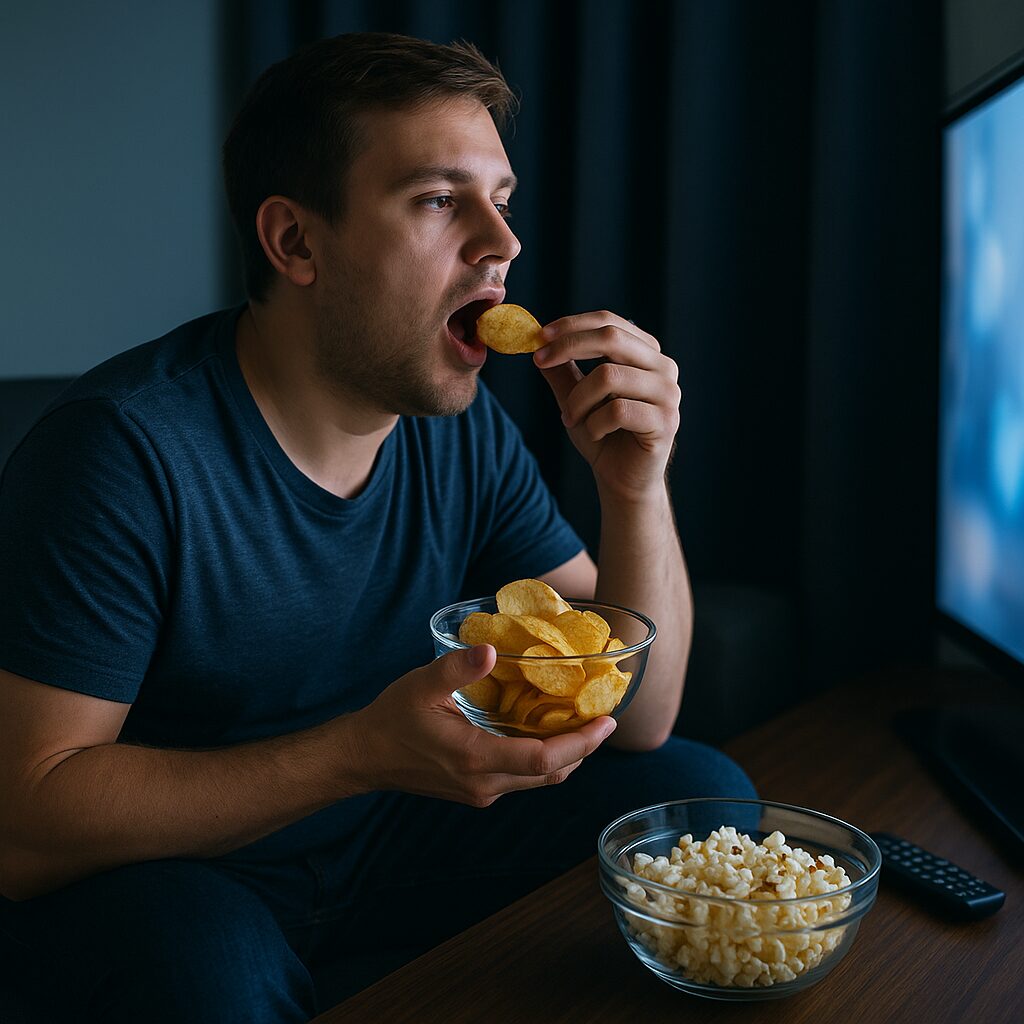Many people find themselves reaching for snacks late at night. While it may provide comfort or temporary relief, frequent late-night eating may lead to sleep disturbance, weight gain, and digestive discomfort. These habits are not simply a matter of weak willpower but often linked to psychological and physiological triggers. This article explores common reasons behind late-night snacking and practical strategies to manage it.

1. Stress and Emotional Eating
Stress often encourages the brain to seek comfort through food. High-fat and sugary snacks may provide quick pleasure by stimulating reward pathways. However, the effect is temporary and may reinforce repetitive snacking patterns.
2. Irregular Meal Patterns
Skipping breakfast or having a late dinner may increase hunger at night. Blood sugar fluctuations can trigger cravings, leading to late-night food choices. Balanced meals during the day may reduce this risk.
3. Sleep Deprivation
Lack of sleep may alter hunger hormones, reducing leptin (satiety) and increasing ghrelin (appetite). This imbalance may heighten the urge to snack late at night.
4. Conditioned Habits
When eating is repeatedly paired with nighttime activities such as watching TV, the brain forms a conditioned response. Over time, these cues may trigger snacking even without true hunger.
5. Loneliness and Psychological Hunger
Quiet late hours may increase feelings of loneliness or emptiness. Food can become a way to cope with these emotions, reinforcing night snacking as a habit.
6. Digital Stimulation
Using smartphones, computers, or watching videos at night may keep the brain alert and extend waking hours. This stimulation often pairs with snacking, strengthening the habit.
7. Practical Tips to Reduce Night Snacking
– Eat balanced meals with protein and fiber throughout the day
– Use relaxation methods like stretching, meditation, or music instead of food
– Limit late-night screen time to reduce triggers
– Drink water or caffeine-free herbal tea before reaching for snacks
– Choose lighter options like fruit or yogurt if necessary
– Keep a consistent sleep schedule to reset body rhythms
🍀
Late-night snacking is often tied to emotional, physiological, and habitual triggers. By identifying personal causes and applying small lifestyle adjustments, individuals may gradually reduce dependence on late-night eating and improve overall health balance.
References and Further Reading
World Health Organization (WHO) – Eating Habits and Health
National Institutes of Health (NIH) – Emotional Eating and Sleep
American Psychological Association – Stress and Eating Behavior
※ This article is for general informational purposes only. Eating habits vary individually, and professional advice may be recommended for personalized guidance.